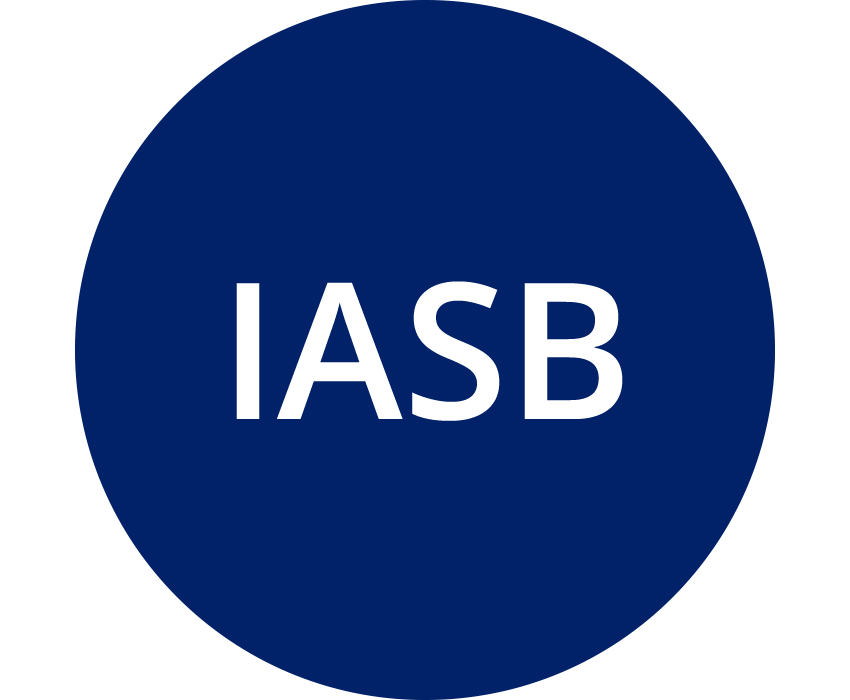SAICA hosts chairs of the IASB and the interpretations committee
For the first time in more than a decade, the chairman of the International Accounting Standards Board (IASB); an independent body responsible for setting accounting standards, preparing, auditing, or using financial reports, and accounting education; paid a visit to South Africa.
The South African Institute of Chartered Accountants (SAICA) was delighted to welcome Dr Andreas Barckow, chairman of the IASB, and Bruce Mackenzie CA(SA), chairman of the International Financial Reporting Standards (IFRS) Interpretations Committee, at the IASB 2022 Chairman event. Dr Barckow said the visit was an indication of the fact that the IASB views SAICA and the members of the accounting profession in South Africa and on the broader continent as important contributors to the IASB.
“We want to ensure that the continent continues to be seen as an important participant in the IASB,” Dr Barckow said. He listed the priories of the IASB as finding new ways of digesting financial information; scanning the horizon for emerging trends and developments that might potentially affect current policy and practice; develop sustainability disclosure standards to support sustainability and corporate reporting; and continually seek new ways to improve communication, which is seen as critical to ensuring its effectiveness.
“We have to always be realistic about what can be achieved, by when,” he added. “We have 40 technical staff working on standard setting across 25 projects. For this reason, the frequency and number of changes have to be kept in check. Timeliness remains an issue as it is a challenge to wait for several years to create a standard, but at the same time we cannot compromise on quality.”
Dr Barckow reported that stakeholders had asked for greater focus on digital financial reporting, which presents significant advantages for preparers, auditors, regulators, users and analysts. However, there remains a need to determine precisely what this entails and how to define it comprehensively.
Bruce Mackenzie’s presentation focused on the work of the IFRS Interpretations Committee, the interpretative body of the IASB. The Interpretations Committee works with the IASB in supporting the consistent application of IFRS Accounting Standards.
“The Committee works closely with the IASB to support the consistent application of IFRS Accounting Standards by responding to application questions that arise in practice,” he said. “We respond by publishing agenda decisions that often contain explanatory materials or by considering possible changes to the requirements. Our aim is to ensure that stakeholders gain a common understanding of the requirements.”
He stressed the importance of the consistent application of IFRS accounting standards. Enhancing the international comparability and quality of financial information, enables investors and other market participants to make informed economic decisions. Mackenzie noted, however, that this does not mean that everyone is expected to “do the same things in the same way”.
“All Interpretations Committee projects begin as a question regarding a Standard,” he explained. “The process is designed to allow any stakeholder to submit a question and the process is transparent. The Committee considers new issues that have been raised and decides whether they should be added to its agenda. For those issues that are not added to the agenda, a tentative agenda decision is published. These tentative agenda decisions are open to public comment.”
Both guests stressed that they were committed to maintaining strong ties with South Africa, and to developing closer ties with local stakeholders. Feedback and criticisms were vital, they agreed, and in the best interests of the developments of standards for the profession.
“If we are not aware of complaints, we cannot address them, which is why we encourage constant and ongoing communication.
We are also aware that standard-setting activity leads to changes. Changes cause disruption and affects every stakeholder. Therefore, we must be judicious in deciding when to change course by taking active projects off the agenda or adding new ones to it,” said Dr Barckow.
Mackenzie noted that it was both important and encouraging to acknowledge that issues pertaining to South Africa were generally relevant across the globe. “It is vital to realise that questions impacting the local scenario actually have relevance everywhere. That is why it is critical to build consensus when it comes to the work we do. We have been gratified to have had the opportunity to share experiences and observations with the large number of people and organisations we have engaged during this rewarding and informative visit.”
The four-day visit reinforced the crucial role that SAICA and its members play in shaping the corporate reporting landscape as the organisation has members sitting on IASB/IFRS Foundation structures.
“Thank you to both the IFRS Foundation and IASB for investing so much time and effort into SAICA. We will remember and honour this visit for years to come. I would like to conclude in the same way that Vincent Motholo, our board chairman concluded his address at our members event as follows, ‘You (the IASB) have an open invitation to SAICA, to our members, and to South Africa,’” said Milton Segal, Executive Director of Standards at SAICA.
About SAICA
The South African Institute of Chartered Accountants (SAICA), South Africa’s pre-eminent accountancy body, is widely recognised as one of the world’s leading accounting institutes. The Institute provides a wide range of support services to more than 50 000 members and associates who are chartered accountants (CAs[SA]), as well as associate general accountants (AGAs[SA]) and accounting technicians (ATs[SA]), who hold positions as CEOs, MDs, board directors, business owners, chief financial officers, auditors and leaders in every sphere of commerce and industry, and who play a significant role in the nation’s highly dynamic business sector and economic development.
Chartered Accountants are highly valued for their versatile skill set and creative lateral thinking, that's why all of the top 100 Global Brands employ Chartered Accountants.
SAICA Media Contacts
Kgauhelo Dioka, ***@saica.co.za
Project Manager: Communications
SAICA Brand Division
Renette Human, ***@saica.co.za
Project Director: Communications
SAICA Brand Division
